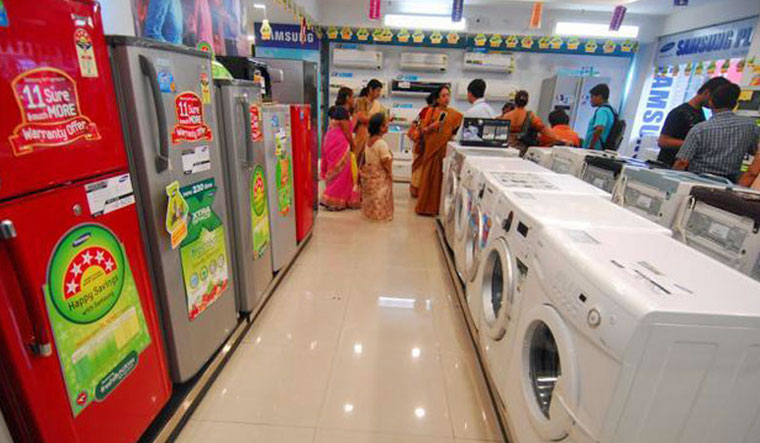Indian economy has been hit by a double whammy: it was already reeling under the worst economic slowdown in recent past when the coronavirus broke out in China. Sectors such as consumer goods, smartphones, pharmaceuticals, chemicals, automobiles and agriculture—heavily dependent on Chinese imports—will be impacted in the near term as industrial production in China has almost come to a standstill.
As a result, Indian consumers stare at rise in prices of everyday goods, from mobiles and electronic items to toys and home appliances. According to various media reports, prices of home appliances, including air conditioners, fridge, washing machines might surge by Rs 1,500 to Rs 2,000 by the end of March. Both foreign and Indian brands have been impacted by the shortage of components imported from China and hence, the price hike might be applied by brands across the spectrum.
In fact, with stocks drying up, dealers are already turning away from offering discounts to boost sales.
Price hike might be seen in LED bulbs, too, in the coming days, if the situation in China continues to be gloomy. The prices of LED bulbs and other lights are likely to spurt by 10 per cent starting March. Dealers of premium smartphones are also feeling the pinch as the products are not being restocked.
India imports bulk of its raw materials from China. Chinese stocks take at least 60-90 days after order before getting delivered to India. While companies may have stocks for 45-60 days, a production disruption in the March quarter may not be acute. But if the contagion continues, June quarter production could be hit.
In the wake of coronavirus spreading its tentacles across the Chinese mainland and proving fatal for more than 2,000 in the country, Chinese factory workers have been ordered to stay home. Clarity is yet to emerge as to when the Chinese will be able to resume production as normal.
The timing could not have been worse—just when Indian economy began to see greenshoots with indications of manufacturing and services sector activity reviving in January.
Another key sector that has sounded warning bells is pharmaceuticals. China accounted for 67.56 per cent of total imports of bulk drugs and drug intermediates at $2,405.42 million to India in 2018-19. "The prices of active pharmaceutical ingredients (APIs) could increase if the situation in China does not improve soon," Zydus Group Chairman Pankaj Patel said. According to official sources, Indian drugmakers have informed the high-level committee that they presently have stocks for the next two to three months.
There has been no supply from the neighbouring country for the last 20-25 days, mainly due to Chinese New Year holidays, sources said.
However, Finance Minister Nirmala Sitharaman said there were no reports of shortage of medicines or medical equipment, instead the pharmaceutical industry is asking for lifting of ban on exports of certain items.
The prices of medicines are monitored by the government, and apart from the essential medicines whose prices are fixed by the government, the companies are allowed to hike prices of the remaining drugs by only up to 10 per cent in a year.
India has a high dependence on fermentation-based APIs/ intermediates namely antibiotics and vitamins. Companies have been maintaining 2-3 months inventory of these APIs and intermediates, Indian Pharmaceutical Alliance (IPA) Secretary General Sudarshan Jain had earlier said.
also read
- Normal monsoon predicted for 2024. Is it enough to bring down inflation?
- With inflation likely to cool and growth strong, shallow rate cuts likely in the second half of FY25
- Inflation has slid again in Europe. What does this mean for interest rates?
- Retail inflation at 5.09 per cent in February, almost unchanged from January
India imports bulk drugs/APIs for producing medicines, including certain essential medicines, from China.
However, flip the coin and the crisis has become a blessing in disguise for local Indian manufacturers. For instance, tile manufacturers in Gujarat have seen a sudden surge in orders after import of Chinese tiles have come to a halt. This means that depsite the gloom, the dull Chinese market opens up opportunities for local manufacturing in India.
(With PTI inputs)


